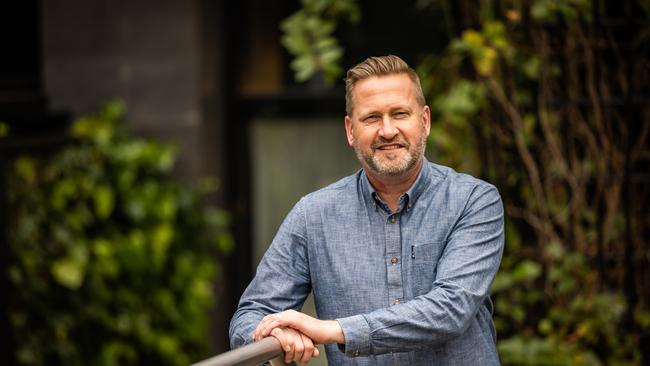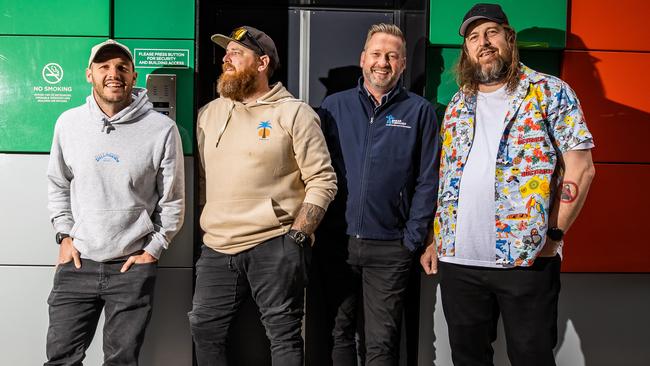Living in fear: Why our blokes are in crisis
Nine people take their lives on average every day in Australia. Seven of them are men. Why is that the case? And what is being done to reverse the trend?
SA Weekend
Don't miss out on the headlines from SA Weekend. Followed categories will be added to My News.
About nine people take their lives on average every day in Australia.
On average, up to seven of them are men.
The most at-risk group is men aged 18 to 44.
And our regions are among the hardest hit and a new problem is emerging among the 65-plus age bracket, many of whom have lost their partners.
So what exactly is going on?
Why are blokes struggling?
Is it men’s inability to properly express themselves?
Is it work pressure? Family pressure?
Relationship breakdowns?
Sense of belonging?
The after-effects of Covid-19?
Toxic masculinity?
Concerns about political correctness?
Social isolation?
Fear of being misunderstood or, worse still, laughed at?
“It’s all of those things and a whole lot more.” says John Mannion, South Australia’s Mental Health Commissioner and executive director at Breakthrough Mental Health Research Foundation.

“We still have the complexity of ‘What happens if I do reach out, is it still seen as a sign of weakness?’
“You know, we’re having more mental health conversations now, but are people hearing them, listening to them?
“So I think the stigma and discrimination that still sits behind that is very, very challenging for men.”
Men are also reactionary and often doubt anyone will truly understand their predicament, he says.
“Our own internal perception is that ‘No one really gets what is happening to me; no one could and I don’t feel anyone could actually support me. I don’t feel anyone could actually give me this guidance or require’.”
Isolation is also a particularly corrosive force.
“There’s some interesting research looking around the negative impacts of social isolation; it has the equivalent physical impact of smoking 15 cigarettes a day,” he says.

We are speaking in generalities and Mannion is quick to point out that each case is unique, in the truest sense of the word.
But the more people and groups Mannion, a trained mental health professional, and his colleagues see (at last count more than 1000 people across the past 12 months alone), the more common threads emerge.
Fundamentally, a lot of blokes are just plain scared.
“Men say to me the reason we’re not talking isn’t because we’re scared about having a mental health conversation, we’re actually scared of having a conversation,” he says.
“Because we’re not sure if we’re using the right language, if it will be interpreted the wrong way.
“If I actually reach out and get the help I actually need, will somebody judge me?”
Their goal now is to do everything in their power to break the cycle.
So what’s the greatest bit of advice you can give to someone who is at breaking point?
“The most powerful thing an individual can do is reach out,” he says.
“That doesn’t have to be to a clinician, it can just be to a friend, can be a family member. “Sitting and sharing what’s occurring to you can do is validating to what you’re actually experiencing.
“And we know the power of feeling listened to.”
So Mannion and a group of colleagues are going into towns, sporting clubs and businesses to try and break the cycle. To get blokes talking. To make it feel normal. To break down stigma. To trust people to open up. To stop them being so bloody scared.
And to do it all over a meal.
It’s called simply Mates, Meal and Mental Health.
If you or someone you know is in crisis, please contact:
■ Lifeline: 131 114 or lifeline.org.au
■ Suicide Call Back Service: 1300 659 467 or suicidecallbackservice.org.au
■ Beyond Blue: 1300 224 636 beyondblue.org.au/forums
■ MensLine Australia: 1300 789 978 or mensline.org.au




